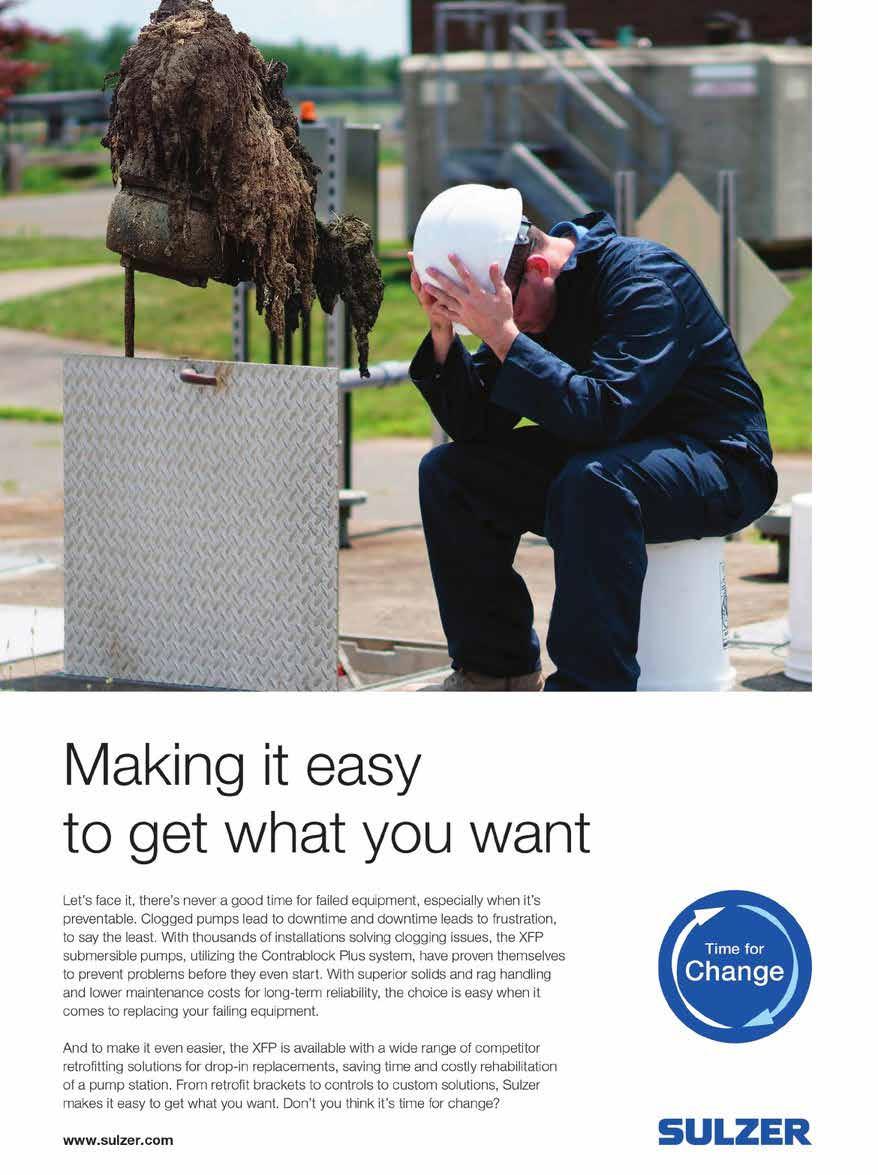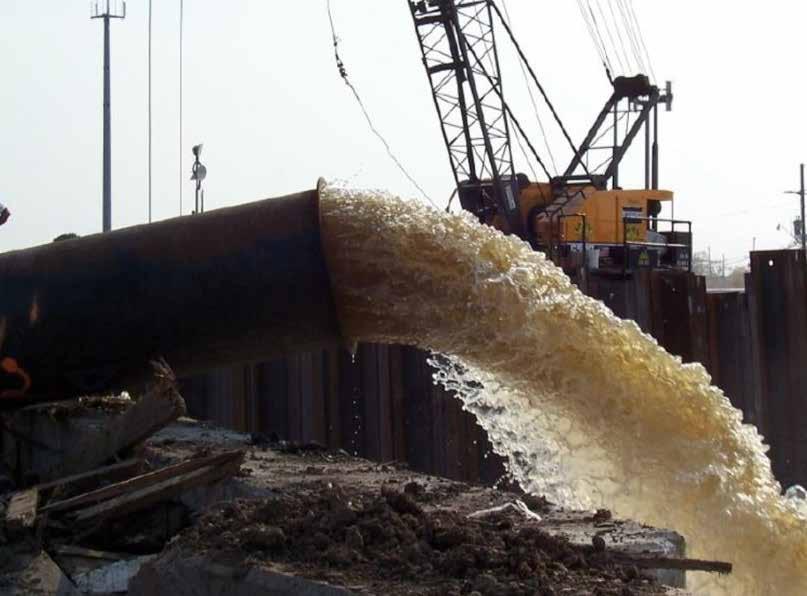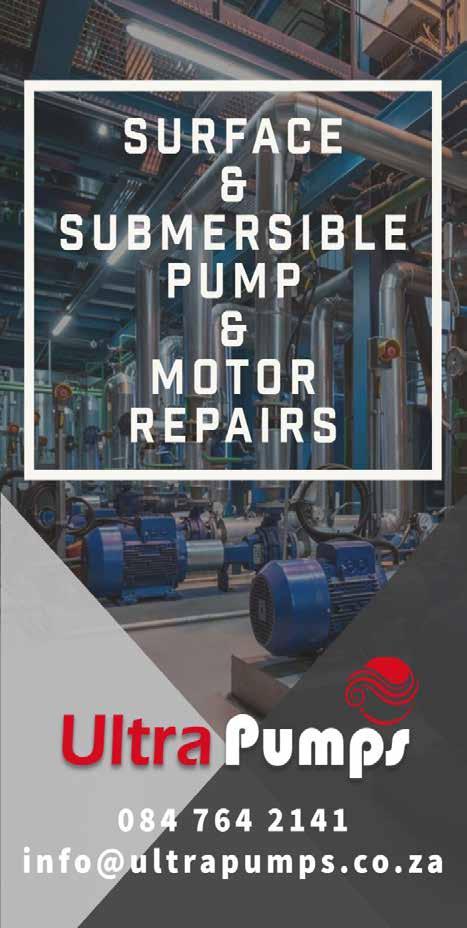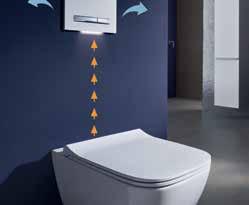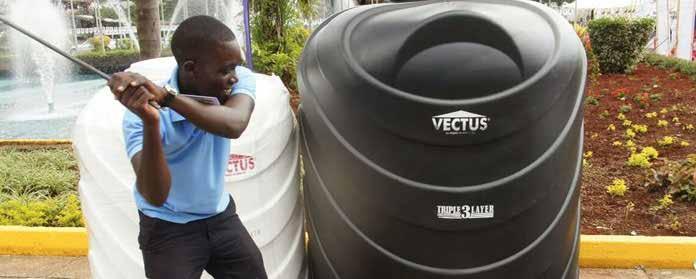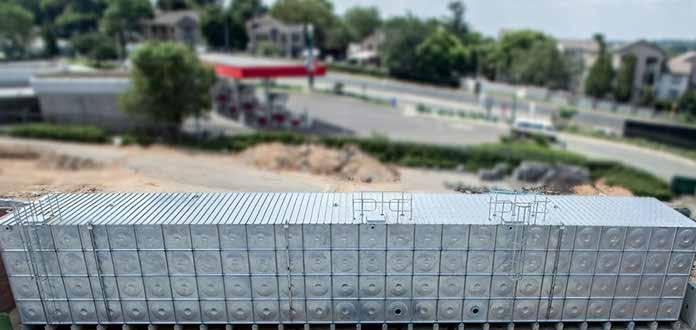
3 minute read
Abeco Tanks South Africa builds massive tank in Africa
South Africa’s water tanks manufacturer and solutions provider, ABECO Tanks, has announced the completion of its biggest tank in Africa, installed for one of South Africa’s largest poultry producer.
The large-scale tank sitting on a surface area equivalent to two tennis courts, holds 5.8 million litres of water with a 3 million-litre supplementary tank providing a total of 8.8 million litres of saved water.
Advertisement
Investing in the “water bank” was a strategic move by the poultry farm to survive the perennial droughts and water shortages in the North West province of South Africa.
Extension and development works of the Southern Meliane wastewater treatment plant in Radés, a harbor city in Ben Arous Governorate, Tunisia have commenced. The North African country’s Minister of Local Affairs and Environment, Mustapha Laroui confirmed the report and said that the project aims to increase the capacity of the Méliane wastewater treatment plant to 90,000 m3 per day from the current 37,500 m3 per day. The project includes the construction of an anaerobic digestion system for the settling sludge, as well as valorization into biogas. The National Sanitation Office (ONAS) of ABECO Tanks South Africa has positioned itself as the World’s first bank for water allowing businesses and people to put a continuity plan in place and to keep functioning even when there is water crisis. The massive facility is a rectangular, sectional bolted tank built to provide for the exclusive requirements of the poultry farm, which supplies international and national markets with chicken for processing and distribution.
Abeco COO Mannie Ramos Jnr. says that Abeco tanks is the only company in Southern Africa with the expertise to manufacture and install a tank that huge in a Tunisia which is the projects implementing body is also planning to reinforce the deodorization system of the plant, as well as the construction of a sea outfall for the discharge of treated wastewater. The Meliane wastewater treatment plant development and extension project is part of the De-pollution of the Mediterranean program (DEPOLMED) which is financed by the French Development Agency (AFD), the European Union, and the European Investment Bank to a tune of over US $167m. The key objective of the program is to reduce water pollution in the region. It will enable record-breaking 38 days – the average time frame that it would take to complete the 5.8 million litre tank, ensure it is water-tight, tested and safe for use is 128 days.
The modular design of the Abeco rectangular water tanks makes them easy to install using basic equipment and store hygienic water that is not affected by Ultra Violet Rays. The careful design and premium materials ensure the tanks are safe for agricultural use especially for livestock consumption.
amos Jnr. opines that water storage for agricultural use is not a proposition in farming, rather It is a necessity that it should be planned for. “Water crises have shown us, the need to plan water consumption, track water saving and save for continuity of service.”
The Abeco rectangular tanks are built to specifications that include Internal bracing consisting of angle iron welded to base plates which are bolted to tank panels and the Jig assembled to ensure dimensional accuracy. The roofs are safely fixed to cold rolled lipped channel purlins supported by tubular posts with high tensile grade nuts and bolts. The steel components are hot dip galvanized secured with non-toxic and non-
tainting sealants and rubber components. the rehabilitation and extension of four coastal wastewater treatment plants in Sud Méliane, Sousse Nord, Jedaida, and Kelibia. It will also see the installation of 53 pumping stations and 29 000 connection boxes as well as the construction of 540 kilometers of wastewater collection networks. Ultimately, the program will help connect 60,000 inhabitants to sanitation networks and improve the quality of services for nearly 1.2 million people.
Tunisia has achieved the highest access rates to water supply and sanitation services among the Middle East and North Africa. As of 2011, access to safe drinking water became close to universal approaching 100% in urban areas and 90% in rural areas. The country provides good quality drinking water throughout the year.

